#spiritual ethics
Explore tagged Tumblr posts
Text
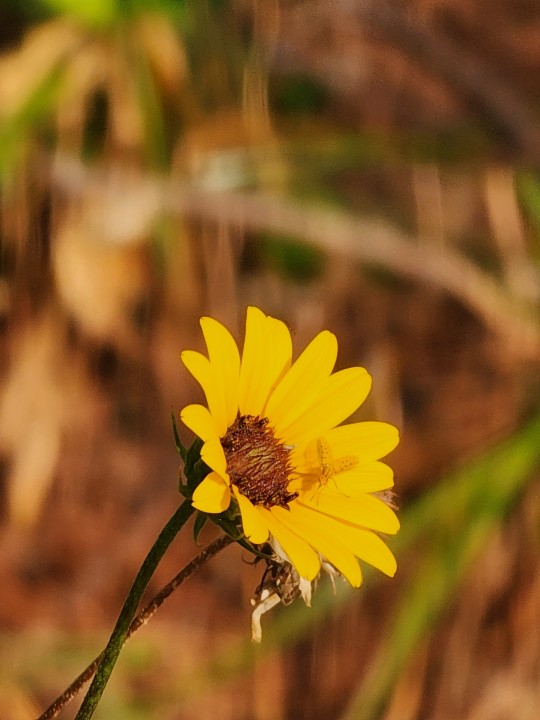

Today and the last few days, I've been working on harvesting and pressing some foliage and flowers. I really love these yellow flowers, which I believe are black-eyed susans. I took stuff with me on my walk today to pick up some trash at the shoreline of the lake, brought along some offering, and tools to harvest and store stuff until I got home. When I saw these two flowers were being used, they both became out of bounds for harvest, so I left them.
I think it's important for folks who maybe only forage for their craft or for making things and who are more casual about it to learn some basic tenants of wildcrafting your Craft/craft.
I've sorta been building my own rules for what materials are acceptable to bring home when I'm out and about on walks or whatever.
1: If possible, don't harvest or collect something the first day you see it.
This rule is in place for me as a reminder that I'm not the animal who gets first dibs on what I see in nature. My impact is much much bigger than any other animal who would use it if I leave it, so i try to leave it for at least 24 hours, if not longer.
2: Half at most, around 1/3 or less is best.
If I'm going to be harvesting to make something, I try to let it be a long-term project so that I can take as little as possible at one time. Out of a dozen flowers, I'd take 6 at most, but probably 3 or 4 from the one place I found them. If I'm walking and find another plant that has 8 of the flowers, at most I'll have 1 or 2 go home with me.
Again, as a human, my impact is bigger, and also, I'm not as reliant on these resources for survival as our bug friends are or the local wildlife. I'm making a tool or an art project, my life isn't depending on the thing being done like their lives depend on these things being available to them.
3: Acknowledge what you're doing (ask, offering, etc).
Ultimately, I'm taking something from its natural habitat, and maybe even snipping it off something, I always try to acknowledge what I'm doing. If I can give something beneficial, I will. However, just that moment of mindfulness allows me to at least maintain a healthier relationship with the world me.
These all come back to acknowledging my place within the world around me as I forage, I'm not viewing the world as something I can harvest from without a direct impact to the wildlife and ecosystem.
I even do this for rocks or abandoned shells on the shoreline. Because I'm sure nature could use the shells I've harvested in some beneficial way, even if just a pitstop for a bug, I acknowledge that.
Granted, there's more happening behind the scenes too. I've walked this path to the shoreline in the neighborhood almost daily since June 1st of this year (I can count on one hand how many times I've not walked/not seen the shoreline). I've talked to the spirits that inhabit the little bits I forage from, and blah blah blah. But, even if the spirits of place and nature spirits aren't a part of your practice, still consider the physical repercussions on the ecosystem when you forage for items for witchcraft purposes or just crafting purposes.
#folk witch#witchcraft#folk mystic#hellenic polythiest#my practice#witchythings#witchblr#witches of tumblr#witch community#wildcrafting#foraging#spiritual morals#spiritual ethics#take care of this planet#please
10 notes
·
View notes
Text
Ramayana No. 5: A Choice of Paths—Righteous vs. Unrighteous Motivation
Previous Post in this Series: Title: 4: The Human Role in the Cosmic Drama—Reflections on Universal Responsibility Next Post in this Series: Title: 6: The Misuse of Power and the Path to Dharma—Reflections on Milarepa As we step further into the Ramayana, Chapter 2 presents us with a clear, timeless dichotomy—a choice point that reflects the world we live in today. On one side, we have a king…
#ancient wisdom#Choices in Life#Dharma#ethical living#Good vs Evil#Hindu Philosophy#Inner Conflict#integrity#King and Sage#Life Choices#Life Path#Moral Dilemma#Motivation#Motivations in Life#Paths of Dharma#personal growth#Ramayana#Ramayana Chapter 2#righteousness#Self-reflection#Spiritual Discernment#Spiritual Ethics#spiritual journey#spiritual reflection#Timeless Wisdom#Unrighteousness
0 notes
Text
ETHICS OF THE PROPHETIC GIFT!
Access to exclusive information and knowledge about people or certain complex conditions of life is a unique and rare spiritual privilege. It is bestowed upon us by heaven, and we should cherish it.
However, this rare privilege comes with a massive responsibility of a mature lifestyle that requires the prudency of not abusing the information received about people to take undue leadership influence that promotes self-centered interests.
As per Ephesians chapter 4, the prophetic gift empowers the Saints for their ministry work. If we use it for our gain, we not only corrupt the gift but also become a tool in the hands of the enemy.
False leaders who claim to have received the gift from God misuse it, leading to its perversion. It is time to recognize the difference between the prophetic gift's sacredness and those using it for their own profit. It's time we see the distinction between the holy and the unholy.
#spiritual maturity#Prophetic ministry#Prophetic ethics#Spiritual development#Kingdom of God#False spiritual leadership#Spiritual ethics#kingdom of God
0 notes
Text
There's this way of doing female-ness in Christianity that I call "pastel flower journal Christianity." I've got nothing against pastel flower journals per se, but for some reason people believe it's the end all and be all of female spirituality, and I think it's a real disservice towards young Christian women.
One of these days I'd like to start a prayer-and-reading group or something for young women, but there would be no floral themes or over-focus on how "God thinks you're beautiful even if the world doesn't" (a true statement, but it's wayyyyy too often the focus in women's spiritual reading). Instead we would be reading:
Seneca's Letters from a Stoic
Frankl's Man's Search for Meaning
Sheed's A Map of Life
Portions of Pieper's book on leisure
Kreeft's Three Philosophies of Life
Guardini's The Lord (or something similar)
Therese's Story of a Soul
and some select portions of the Nicomachean Ethics.
(Also they're all getting the porn talk. I don't know why we give the porn talk to young men but not young women. There's this idea that women don't use porn and they only need the talk about "guarding their heart." Bullshit. There's porn on the YA shelves of Barnes and Nobles and before that there were bodice rippers. Young women need the porn talk too.)
Every young woman needs to be getting a basic grounding in virtue ethics, logic, natural law, scholastic philosophy and Biblical hermeneutics if they're going to get by in today's spiritual landscape. Enough faffery and emotionalism in young women's spiritual education! Give them real food to chew on, not pasty sentimentalism!
#Christian femininity#Christian women#Christian#Christianity#Catholicism#Catholic women#Catholic femininity#Catholic feminism#Catholic#I'm sure there should be something by Stein on this list but I haven't read her stuff yet#Anyway if I could shove one book into the hands of every young woman on this site#it would be either Letters from a Stoic or Man's Search for Meaning.#I think a lot of women on this site could benefit from those two books alone.#Much of the way we treat women's sense of spirituality and ethics is trusting them to just blindly feel their way to the right answer#While we give young men clear-cut instructions and reasoning.#It's bullshit. And it's actively harmful. I would never say feelings are useless#but without a well-formed intellect and conscience they're just not going to carry you as far as you need to go on their own.#I had the value of a good moral and philosophical education because of where I went to school—same as the boys in my class.#And it's spared me so much grief. People put the tools in my hands to make smart decisions and empowered me to seek the good.#All young women deserve the same.
1K notes
·
View notes
Text
I need tumblr to help me with a philisophical dilemma here. I want you all to really ponder. Say there is a great ruler. Say this ruler really loves them spicy microwave noodle bowls, but they give him actually mind blowing diarrhea. Is continuing to purchase said noodles an act of self love or self loathing, and should his willingness to continue consuming them be considered a fortitude or surrender?
279 notes
·
View notes
Quote
We are entering an epoch of a new spirituality, that will correspond to the new form of mysticism. It will no longer be possible to argue against a heightened spiritual and mystical life that human nature is sinful and that sin must first be overcome. A heightened spiritual and mystical life is the road to the victory over sin.
Nikolai Berdyaev, Freedom and the Spirit
#philosophy#quotes#Nikolai Berdyaev#Freedom and the Spirit#spirituality#mysticism#humanity#sin#ethics
58 notes
·
View notes
Text
Nothing worse than getting into a new subject and having no one to discuss it with
#self education#nerdy girls#philosophy#psychology#neurology#spirituality#religion#ethics#esoteric#literature#pop culture#video essay#art#art history#history#science#astronomy#quantum physics#politics#documentary#aa
172 notes
·
View notes
Text
Hey yall.
Update:
I still need help but I'm in a better spot now.
I can't say much more than that.
It's my intention to use what life I have left for these reasons:
1. To enjoy Life because most of my life has been traumatic.
2. To use my abilities for the betterment of myself and others.
3. To create an organization specifically to help disabled trans mascs and others. Bc there needs to be more.
4. To use all my resources to create a post scarcity society founded on mutual aid, self sustainability, and compassionate understanding/unconditional regard.
If you'd like to help me - a disabled trans man of color - make a better life..
Venmo: @torchport
Cashapp: $onepeaceman
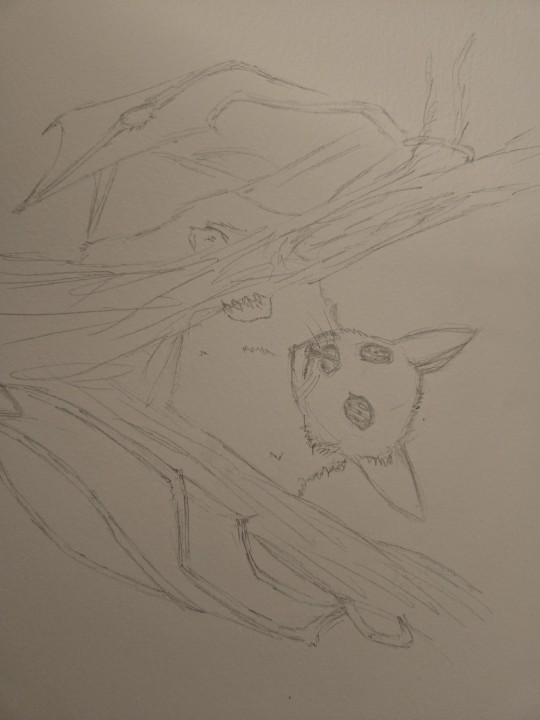
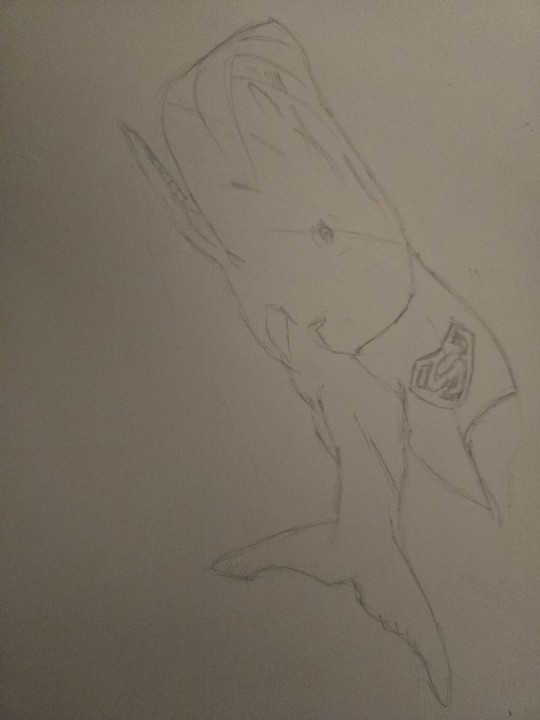
I also draw. If you want something for 10$ or so.
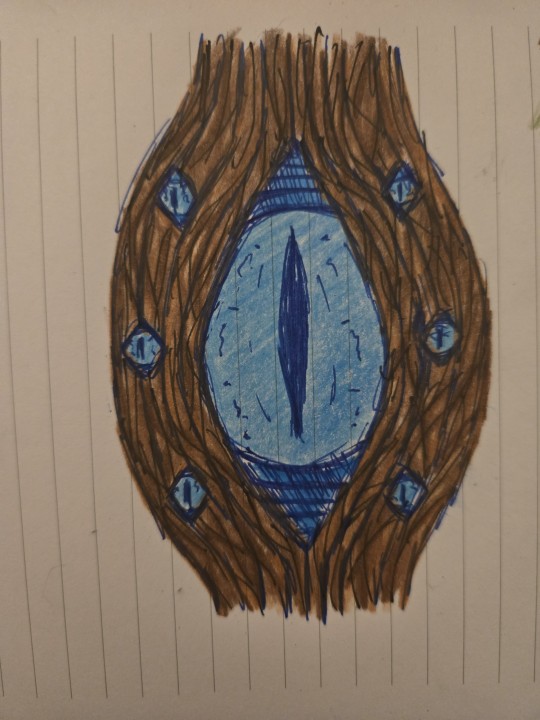
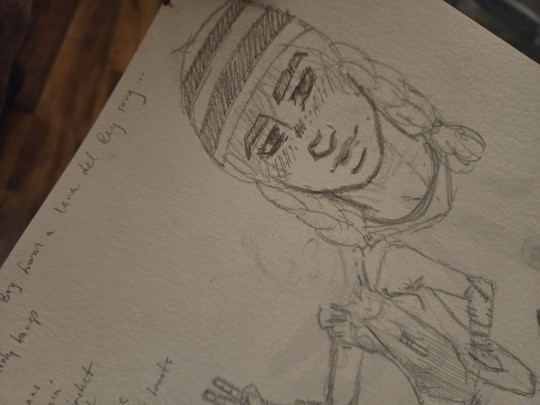
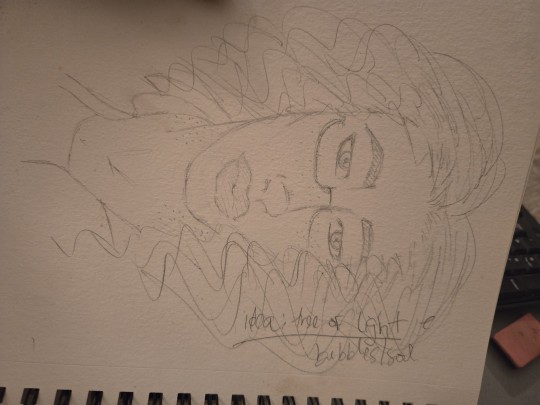
#trans#trans man#queer#transgender#lgbtq#mental health#politics#anti capitalism#capitalism#america#anti work#post scarcity#late stage capitalism#socialism#ethics#philanthropy#philosophy#psychology#transpersonal#spirituality#understanding#disabled#disability#invisible disability#physical disability#voidpunk#bodily autonomy#universal basic income#universal basic healthcare#art
21 notes
·
View notes
Text
yakuya in MY swamp? in MY ecosystem? no . i am still in disbelief. i hope you all know that my particles are bouncing off the everything. i am using periods as punctuation but the state of my mind is naught neareth final.
#the devs really did surprise me.....i'll credit them with that#i fully believed it was gonna be rei#i looked at that silhouette. saw the chunky heels. thought of kuya#but i scoffed at myself. tch. of course not. devs wont play with their strange topbottom segregation. i'll never get the yakuya event#at least not until it's with garu so they have a yokai hella exposition event#it's gonna be rei at a specific angle to SIMULATE a kuya. he will be wearing kuya-esque heels just to spite all the kuyafans#AND YET HERE WE ARE#UNDER THE SEA NO LESS#WHAT ARE THEY DOING INVADING MY SPACE LIKE THIS#like hell i'm gonna share my zone (abyssopelagic) with those accursed sirens#i'm going lower#i'm moving to the trenches. i'm gonna slowly lose the use of my eyeball sight . i'm gonna adapt to conditions#SO MANY conditions. maybe even learn to bioluminesce#actually no. then the predators might find me. and i'll have to regain the use of my eyes in order to improve my chances of escape#perchance even enlargen them like the giant squid. living in constant fear of a fox or a snake appearing in the depths#yet i get the creeping suspicion that kuya is just going to bully yakumo (when he's not bullying eiden)#kuya gonna drop a sad story about personal sacrifice and the difficult lives he's lived#and yakumo ever the baby in comparison will stare at him with his massive saucer eyes like.... do i... deserve to feel sadness?#if i have not gone through the trials and tragedies that master kuya has???#is kuya gonna be soft yokai grandpa or is he gonna be Auntie of Hard Reality#the boy just wants to find new soup ingredients#kuya will then unveil the ethical ramifications of harvesting these specific ingredients#and using them for a purpose other than their original spiritual intent by the indigenous merfolk#along with the questionable supply chain and processes that go into creating the ingredients in the first place#(not that any ethics or spirituality rituals or stuff like that is actually enough to influence kuya's behaviour in any way)#but it'll certainly mess with yakumo!!!! and that's where all the fun is?#furrows brow. what will they do with this event.....#i am so very excited to see them interact..!#mirage of scales#yakuya
24 notes
·
View notes
Text
jaime is so gender in a way that makes sense. like he is a dude who is totally comfortable with being a dude. he could be the younger more beautiful queen if he wanted to but even then he would be doing it in a very man way. he crossdressed his way through childhood but he doesnt really care. despite all of his problems and his flaws, he knows how his gender works and nothing's really a threat to it.
CERSEI, meanwhile, is so gender in a way that is so deeply confusing i get a headache every time i think about it.
#tyrion isnt really gender. hes kinda like that ethics teacher at my school who called me a nobody underclassmen last week.#spiritual successor to the brienne gender meta#jaime is extremely comfortable in his masculinity. dont have a fucking clue what cersei's on though.#cersei lannister#jaime lannister#asoiaf#house lannister#a song of ice and fire#my posts#tyrion lannister
188 notes
·
View notes
Text
The Philosophy of Zen
The philosophy of Zen is a branch of Mahayana Buddhism that emphasizes direct experience, mindfulness, and the attainment of enlightenment through meditation and intuitive insight rather than through doctrinal study or ritualistic practices. Originating in China as Chan Buddhism and later flourishing in Japan as Zen, this philosophy seeks to transcend the dualities of ordinary thought and to awaken to the true nature of reality, which is seen as beyond conceptual understanding.
Key Concepts in the Philosophy of Zen:
Direct Experience and Enlightenment (Satori):
Immediate Awareness: Zen emphasizes direct, immediate experience as the path to enlightenment (satori). This means engaging with reality without the interference of conceptual thought or the ego, often through practices such as meditation (zazen) and mindful awareness.
Satori: Enlightenment in Zen, known as satori, is often described as a sudden, profound realization of the interconnectedness of all things and the emptiness (śūnyatā) that underlies reality. This insight transcends ordinary understanding and reveals the true nature of existence.
Meditation (Zazen):
Seated Meditation: Zazen, or seated meditation, is the core practice of Zen. It involves sitting in a specific posture, focusing on the breath, and observing thoughts without attachment. The aim is to quiet the mind, develop concentration, and eventually experience deep states of awareness and insight.
Beyond Techniques: While zazen is a formal practice, Zen teaches that meditation can extend into all aspects of life, encouraging practitioners to bring the same mindfulness and presence into everyday activities.
Koans and Paradoxes:
Koans: Koans are paradoxical statements or questions used in Zen practice to transcend logical thinking and provoke direct insight. A well-known example is, "What is the sound of one hand clapping?" The purpose of a koan is not to find a logical answer but to break down the barriers of conventional thought and open the mind to a more profound reality.
Beyond Rationality: Zen often challenges the limits of rationality, using paradox and contradiction to point out that true understanding is beyond intellectual comprehension.
Non-Dualism and Emptiness (Śūnyatā):
Transcending Duality: Zen philosophy rejects the dualistic thinking that separates the self from the world, subject from object, and good from bad. Instead, it teaches that all distinctions are illusory and that true reality is non-dual.
Emptiness: The concept of emptiness (śūnyatā) is central to Zen. It refers to the idea that all things are interconnected and lack an independent, permanent essence. Understanding this emptiness is key to realizing the impermanent and interdependent nature of reality.
Mindfulness and Present-Moment Awareness:
Living in the Present: Zen encourages practitioners to live fully in the present moment, without attachment to the past or anxiety about the future. This mindfulness is cultivated in both formal meditation and daily activities.
Mindful Action: Zen teaches that any action, no matter how mundane, can be an opportunity for mindfulness and awareness. The concept of "being one with the task" is emphasized, where the distinction between the doer and the deed dissolves.
Simplicity and Naturalness:
Simplicity: Zen values simplicity in both thought and lifestyle. This is reflected in Zen art, architecture, and daily practices, which emphasize naturalness, austerity, and the beauty of the unadorned.
Natural Flow: Zen encourages a natural way of being, in harmony with the flow of life. This idea is often illustrated by metaphors of nature, such as the effortless way a tree grows or a river flows.
Compassion and Ethical Living:
Bodhisattva Ideal: Although Zen emphasizes direct personal experience, it also upholds the Mahayana Buddhist ideal of the bodhisattva—someone who seeks enlightenment not just for themselves but for the benefit of all beings. Compassion and ethical conduct are integral to this path.
Engaged Buddhism: In modern times, Zen has also inspired forms of engaged Buddhism, where mindfulness and ethical living are applied to social, environmental, and political issues.
Art, Aesthetics, and Expression:
Zen Arts: Zen has profoundly influenced Japanese arts, including tea ceremony, calligraphy, poetry (such as haiku), and gardening. These arts embody the principles of simplicity, mindfulness, and the transient nature of existence.
Expression of Enlightenment: In Zen, artistic expression is often seen as an extension of the meditative mind. The spontaneity and directness found in Zen arts reflect the same qualities valued in Zen practice.
Non-Attachment and Letting Go:
Letting Go of Ego: Zen teaches the importance of letting go of the ego, desires, and attachments that create suffering. By relinquishing these attachments, one can experience a deeper, more peaceful state of being.
Non-Striving: Paradoxically, Zen teaches that enlightenment cannot be attained through effort alone; it requires a state of non-striving, where one lets go of the desire for enlightenment and simply allows it to arise naturally.
Silence and the Ineffable:
Beyond Words: Zen often emphasizes the limitations of language in capturing the essence of reality. Many Zen teachings are conveyed through silence or direct, non-verbal actions, highlighting that the deepest truths cannot be fully expressed in words.
Ineffability of Truth: Zen suggests that true understanding comes from direct experience, not from intellectual discussion or analysis. This is reflected in the Zen saying, "The finger pointing at the moon is not the moon," indicating that teachings are merely pointers to the truth, not the truth itself.
The philosophy of Zen offers a unique approach to understanding the nature of reality and the self, emphasizing direct experience, mindfulness, and the transcendence of dualistic thinking. By cultivating a deep awareness of the present moment and embracing the simplicity and natural flow of life, Zen practitioners seek to realize the interconnectedness of all things and attain enlightenment. This philosophy has had a profound influence on both Eastern and Western thought, inspiring not only spiritual practice but also art, literature, and approaches to everyday living.
#philosophy#epistemology#knowledge#learning#education#chatgpt#ethics#metaphysics#ontology#psychology#Zen Buddhism#Mindfulness#Non-Dualism#Meditation (Zazen)#Enlightenment (Satori)#Koans#Emptiness (Śūnyatā)#Present-Moment Awareness#Simplicity#Zen Arts#Non-Attachment#Bodhisattva Ideal#Engaged Buddhism#Spiritual Practice#Japanese Philosophy
15 notes
·
View notes
Text
"Let’s ask God to help us to self-control: for one who lacks it, lacks His Grace. The undisciplined person doesn’t wrong himself alone–but sets fire to the whole world. Discipline enabled Heaven to be filled with light; discipline enabled the angels to be immaculate and holy." ―Jalal al-Din Muhammad Rumi
#ethics#self control#psychology#gnosis#samael aun weor#self realization#meditation#gnostic#spiritual awakening#consciousness#spirituality#religion#rumi
18 notes
·
View notes
Text
“We are always falling in love or quarreling, looking for jobs or fearing to lose them, getting ill and recovering, following public affairs. If we let ourselves, we shall always be waiting for some distraction or other to end before we can really get down to our work. The only people who achieve much are those who want knowledge so badly that they seek it while the conditions are still unfavorable. Favorable conditions never come.”
—C. S. Lewis
33 notes
·
View notes
Text
For when religious men lose confidence in the power of moral principles to effect good in the world, the immediate and terrible result is that force and violence are called into play to solve the social evils that cannot longer be endured. [...] Hence the question: "Isn't it the race problem hopeless?" we answer: "To declare a moral problem hopeless is to declare the bankruptcy of human society."
- Fr. John LaFarge, S.J. (Interracial Justice: A Study of Catholic Doctrine on Race Relations, page 7)
#spirituality#morality#ethics#Catholicism#Christianity#social justice#tikkun olam#John LaFarge#despair
36 notes
·
View notes
Text
Anyone and everyone is welcome to send me asks or dms with questions about veganism! I am like a walking library and very much encourage it.
#vegan#vegetarian#animals#cute#ethics#spirituality#philosophy#cows#chickens#pigs#piglets#chicks#nutrition#health#negative utilitarianism#efilism#sheep#lambs#goats#turkeys#birds#cats#dogs#hamsters#guinea pigs#gerbils#pacifism#anti exploitation#anti capitalism#antispeciesism
11 notes
·
View notes
Text

PEACEFUL RESOLUTIONS
How to foster peace and coexistence? We must draw our attention to deep inner reflections on destruction and the state of enduring distress. What is destruction? Suffering, pain, and sacrifice which results and causes extreme aversion, disassociation of reality and self, fragmentation of the soul, and an adoption of the belief or perception of threat, harm, and chaos are the natural states of our existence. What we define within our mindset must undertake a reformation. To accept that suffering, hardship, or valence of unpleasantness is to endure a full spectrum of life, is negligent, absurd, and should not be adopted as the norm as normative human behaviour.
There is a quote that states that “Those that have lost everything, fear nothing,” and we have blindly accepted that through difficulty character is then presented. However, what if we evoked deep inner reflections to ask ourselves whose normative responses we adopted to have accepted this as our fate? Character is represented in our choices, and to not act is a response as well. To be responsible and accountable is to take into account how our actions impact others.
Suffering, pain, chaos, and negative emotions are a symptom of dystopian society however, are not the root cause. Many have accepted that their truth or meaning will be a result from sacrifice or allowing imposed harm within their existence. It may be presented in our external reality however, if one removes themselves from catastrophic situations would it persist? Even worse, what has occurred within humanity that we allow suffering to be imposed on others at such great magnitude? If we remain silent, are we then in agreement or complacent?
Stress, trauma, and agony results in great physical and mental strain — it even affects our neurological process within life. Allowing constant conscious endurance of pain leads to neurological disorders, malfunctions of the body and development, which then leads to our internal and external environment being inhospitable and disruptive.
One has to remember, we do not have to allow it to persist or accept the reality of the situation to end in fragmentation. Wars deteriorates the fabric within society causing division, polarity, creating the enemy or other, and breaks the moral, ethical, principles and foundation of tradition or what we hold sacred.
When we become mindful, present, aware of our actions, not allowing our emotions to overtake our rationality, remaining neutral until we observe all the facts, or willfully choose to abstain from such detrimental acts of inhumanity or not allowing deterioration of the minds and souls of others — we then recognize the destructive nature of war mindset and evolve from it.
Growth, evolution, and transformation cannot take root on scorched land. When we allow others to wreak or create havoc or turbulence, it leads to no solutions, or enlightened conscious awareness. To be in a state of fear, panic, disorder, disassociation of life, or no motivation causes one to lose faith in a better tomorrow. What is the incentive to get better when it is accepted as the normative state?
War is not our natural state. Our purpose is to achieve equilibrium, harmony, and cohesiveness. Remaining present, not accepting our current life situation, acknowledging how the emotions of turmoil affects us as human beings enables us to have compassion for others. To deny creativity, solutions or even life, is abstaining from the natural laws of abundance, freedom, and peace. Resistance to any form of violence is not an indication of weakness, it is the courage and strength to seek peaceful relations, instead of irrational actions which in short term might lead to satisfaction but long term causes the destruction of the moral fabric of existence.
Motivation to move or distance ourselves, away from those that cause harm, enables us the freedom and emancipation from enduring destruction to the self and others. When we seek justice and not revenge, it is a moral paradox, as we have to question, what justice represents to one may not be to another, and revenge leads to a cyclical nature of vindictive manoeuvres which inflicts harm on others thus, escalating to a karmic response.
To accept that one deserves punishment, sacrifice, hardship, pain, powerlessness is a generational mindset to accept fear. To engage in vengeance, or to cause punishment is by itself a force that is not of peaceful rational mindset.
To be rational, logical, and patient is ascended knowledge. When one experiences anger, it is best to refrain from any intentional actions, thoughts, or words that can deteriorate relationships.
To live within coexistence is to enable respect, tolerance, and acceptance of one another. If one feels superior to dominate another — it is representative of a society that has undergone moral and ethical deterioration. Our actions have consequences, and we must be mindful that the actions of today can destroy the families or societies of tomorrow.
Evoking reason, impartiality, logic, reasoning, compassion, empathy, understanding, and patience are essential elements and ingredients in peace keeping and building. Making sensible decisions based on logical principles rather than emotion is what separates us from warfare mindset. When one critically examines the information, observing evidence and options available, we then allow the mind to look progressively to seek resolutions. Always be mindful that our emotions within time will restore back to harmony. If a situation causes deterioration of your inner peace or makes you question your moral judgment, it is not in alignment for the highest good. Irrationality leads to inconsistency and uncertainty and is rewarded with a karmic imprint, that one will hold for several lifetimes, until the lesson or cycle has broken.
Through diplomatic approaches, dialogue, deliberation, seeking peaceful resolution, and enforcement of intervention techniques can minimize and mitigate the impact of disturbances and conflicts. Being the first to initiate reconciliation, seeking inner forgiveness to emancipate the soul, and evoking discipline to learn to rise above and to make better choices enables cooperation, conciliation while maintaining integrity, standards, principles, respect and honour.
Within the world, we have a choice to evoke peace through negotiation and mediation. To be mindful and aware of human suffering is the first step to engage in humanitarian efforts to protect human welfare. To become a cohesive whole, the primary objective is to promote human dignity and to adopt tolerance, acceptance, and inclusion. We all are paramount in enabling peaceful efforts to alleviate human suffering, improve the welfare and happiness of others, to promote security and safety, and to help those that have experienced trauma heal and recover. We are here to make a difference, our actions echo in all space and time, we have the option and the gift to foster positive change for future generations. Be the difference.
#peace#empowerment#empower#love#motivation#inspiration#life#inspire#motivate#faith#peaceful#resolutions#resolution#solutions#community#tolerance#ethics#empathy#acceptance#authenticity#self awareness#healing#self reflection#understanding#spiritual#spirituality#spiritual awakening#spiritual journey#spiritualgrowth#meditation
7 notes
·
View notes